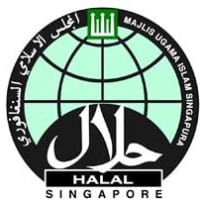By Hariz Baharudin – Straits Times
Findings of independent review panel and its own internal investigation given to MCCY
 Allegations of questionable halal certification practices by the Islamic Religious Council of Singapore (Muis) have been investigated and the findings have been submitted to the Government, said Muis yesterday.
Allegations of questionable halal certification practices by the Islamic Religious Council of Singapore (Muis) have been investigated and the findings have been submitted to the Government, said Muis yesterday.
The council said in a release that the findings of an independent review panel tasked to review its certification process, as well as the findings of its own internal investigation, have been submitted to the Ministry of Culture, Community and Youth (MCCY). The outcome will be made known in due course.
Muis added that while the outcome of the investigation is pending, an officer against whom the allegations were made has been removed from handling matters relating to the recognition of foreign halal certification bodies (FHCBs).
FHCBs are organisations Muis deems to have similar standards to its own when it comes to halal certification and whose products are certified as halal, or fit for consumption by Muslims, when imported into Singapore. These organisations can earn thousands of dollars monthly by selling exported products to Singapore.
Since April, Muis has made several public statements in response to allegations by Hong Kong-based news outlet Asia Sentinel that the council showed favouritism in its recognition of FHCBs. Other articles have been published repeating and furthering the accusations.
In response to these, Muis had said in June that an internal investigation team, as well as an independent review panel, chaired by Muis Council Member and retired audit director from the Auditor-General’s Office Mr Abdul Hamid Abdullah, had been established to review the allegations.
Muis said yesterday that it has been alerted to an online article falsely attributing remarks to Mr Abdul Hamid and containing several other inaccuracies.
The article, whose origin Muis did not identify, also alleged that individuals who assisted in the council’s investigations were coerced into signing non-disclosure agreements before submitting evidence.
The council denied this, and said that individuals assisting in investigations were requested to sign such an agreement to safeguard the confidentiality of the investigation process. None of them objected, added Muis.
Social media posts regarding the outcome of the investigation process are still circulating, casting aspersions on the integrity of the process, warned Muis.
The council said: “This is irresponsible. We ask that such parties cease doing so and allow due process to take place. Muis will update on the investigation outcome after the matter has been considered by the Ministry of Culture, Community and Youth.”
In April, Hong Kong-based news outlet Asia Sentinel alleged that a Muis official was being investigated for corruption by the Corrupt Practices Investigation Bureau (CPIB), a claim a CPIB spokesman would neither confirm nor deny, citing confidentiality issues.
Muis has clarified that key decisions on halal certification are not made by one person but by an independent panel and that the certification of FHCBs is held to the same rigorous standards as the local certification processes.
The story has been edited for accuracy.
ARTICLE TWO – 6th November 2020
By: Murray Hunter – Asia Sentinel
Chairman of inquiry says final report escalated to higher authorities
The final report of a corruption probe of the unit that grants approval to halal foods and other products inside the Singapore Islamic Religious Council, a government-backed organization, has been kicked upstairs to Prime Minister Lee Hsien Loong and withheld from public release for almost three months after its completion.
According to the chairman of the inquiry Abdul Hamid Abdullah, the final report was submitted to the minister for Social and Family Development, responsible for Islamic affairs Masagos Zulkifli last August. Abdul Hamid told Asia  Sentinel that the report has been “escalated to higher authorities for further inquiry or investigation.”
Sentinel that the report has been “escalated to higher authorities for further inquiry or investigation.”
According to Hamid, disturbingly the inquiry spent a lot of effort focusing on “unauthorized disclosure or leakage of information” from the council, known by its Malay name Majlis Ugama Islam Singapura, or MUIS – in other words, trying to find out who had given Asia Sentinel evidence of misdoings within the religious council. Another source indicated Hsien Loong has become personally involved although the extent of his involvement is unclear, or what his concerns are.
From the start, there has been little transparency surrounding the inquiry. While many similar ministerial inquiries around the world allow public access to testimony provided to an inquiry by witnesses, in this case, witnesses say they were coerced into signing non-disclosure agreements before evidence was taken from them.
The witnesses say they were given the choice of signing the agreement and giving evidence or being disqualified from appearing before the board of inquiry. This is of some concern, particularly when the final report has not been released publicly. The ministry in charge of the religious council has not returned requests for information.
There is no access to any evidence in the form of testimonies for the public to make their own minds about the validity of any findings. This runs counter to any trust by the public in the integrity of the halal certification process, particularly where there were many allegations of lapses in halal protocols at abattoirs reported.
The delay in making public the inquiry casts a shadow over the integrity of halal certification in the supply chain for Muslim consumers, who make up about 15 percent of Singapore citizens.
Allegations of corruption involving foreign certification bodies (FCB) which were reported by Asia Sentinel in several stories beginning in April 2019 led to the inquiry. FCBs are independent firms that certify that products to be shipped meet religious standards of slaughter. The board of inquiry was set up by MUIS to investigate complaints about misdeeds and abuse of authority by senior officials in the institution’s halal strategic unit by numerous parties abroad as well as locally.
Although seven of the certification bodies lodged sworn statements, or Statutory Declarations detailing what they termed as undue pressure on them, none were interviewed by the inquiry. Four slaughtermen based in Australia also lodged complaints. There was one complaint from a Singaporean independent halal auditor who practices in Australia on a freelance basis. Locally, within Singapore, there were complaints from several halal auditors.
These complaints centered around abuse of authority and favoritism granted to some certification bodies which allegedly gave them commercial advantage. Some of them were de-listed without any reason provided. Some allege they were deliberately barred or had their renewal and relisting delayed indefinitely without any stated reason.
Some competing FCBs said they were forced to surrender their client lists and pass them over to FCBs favored by an officer of MUIS. Others said they were compelled to appoint favored consultants to enable them to gain certification from MUIS.
They also complained that rules regulating the appointment of FCBS were interpreted or changed at the whim of MUIS officers. At least one FCB was told by a MUIS officer that he alone decides who is granted or is refused accreditation.
The board of inquiry did not consider domestic complaints, although Asia Sentinel reported on halal certification corruption issues within Singapore in July.
Privacy of confidential FCB information was another issue that some FCBs were very unhappy about. A number of allegations were supported with documentation, that MUIS officers forwarded confidential correspondence to third parties, some of whom were competitors. Complaints of improper conduct in the Halal Strategic Unit have been repeatedly made over the years but have always been ignored, and even covered up, according to complainants Asia Sentinel has been in contact with.


